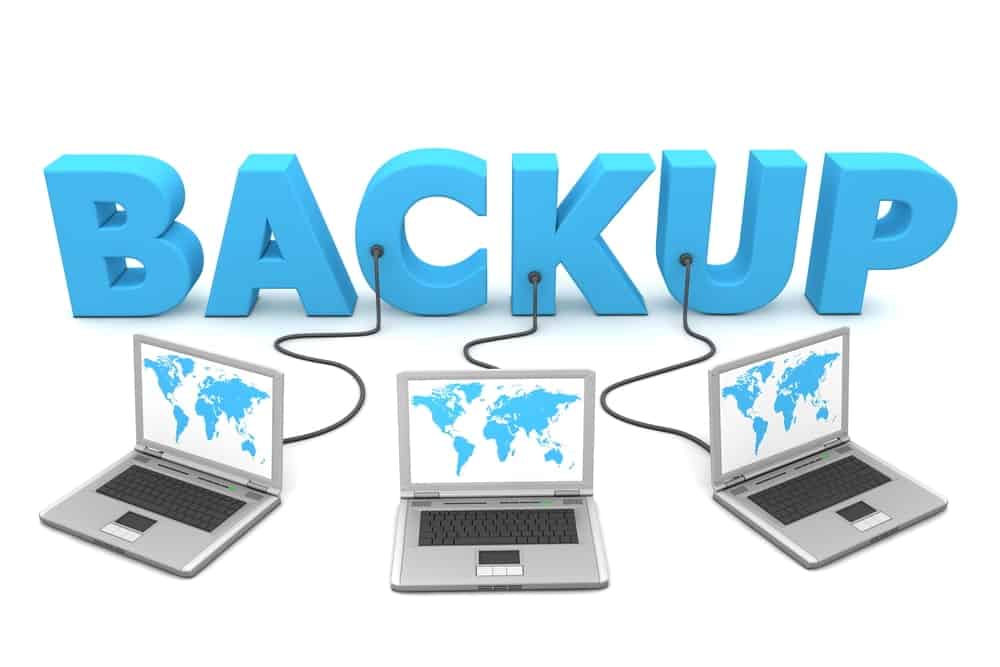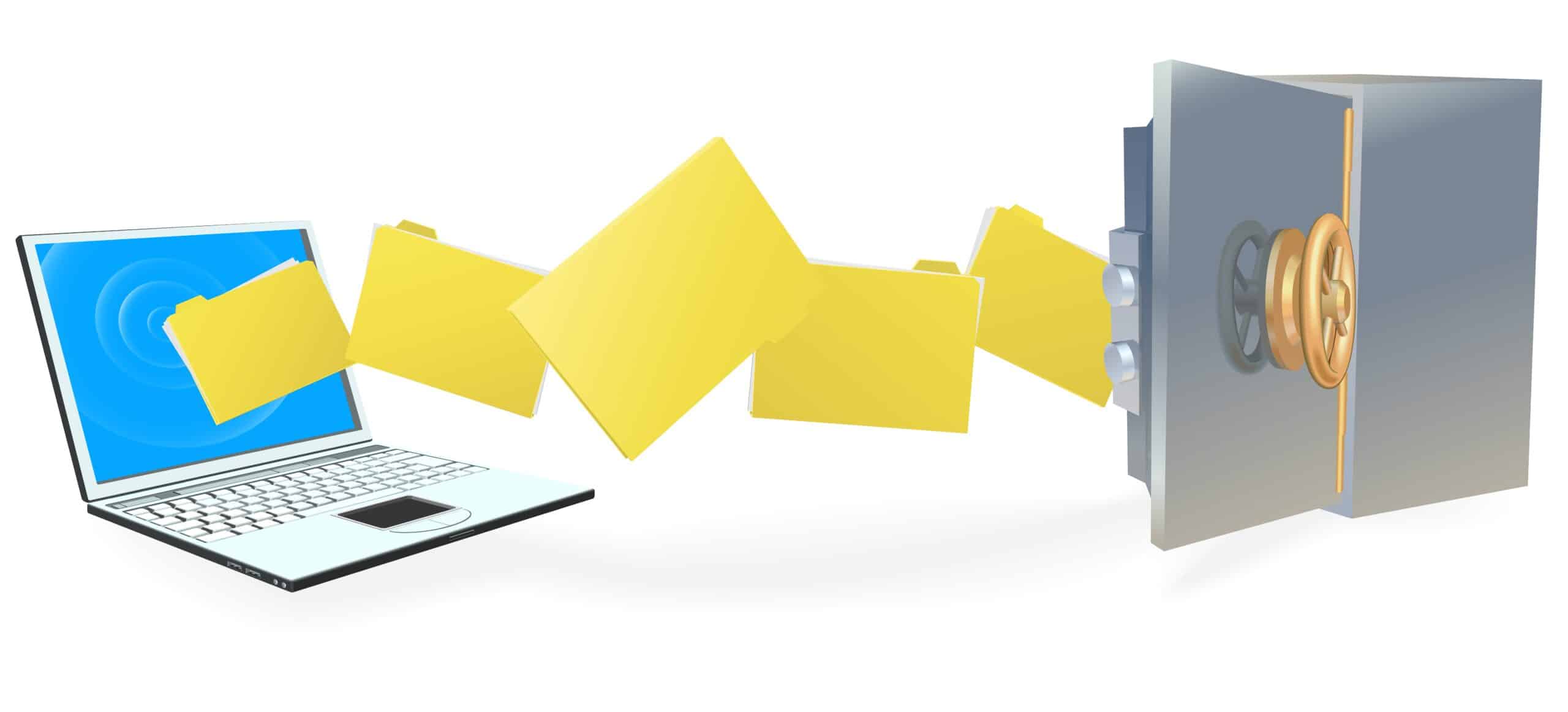Backing up your website is just as important as the design and development phases of your project. It would be a tragedy if you put in all that hard work to produce a quality website and then lose it to hackers, a natural disaster or just human error. All of that time and effort spent on design, development and testing would be wasted. Most people need to experience a major loss to be convinced they need backups, but you are wiser than them. Right?
But what exactly do you need to backup? And how often should you backup your site?
Backup Frequency
It’s important to backup your site, but the frequency really depends on how often you’re making changes to the site itself. It’s always a good idea to backup the current working version of your site before ever publishing a large update. Even if you thoroughly test a new update to the website, you never know when some type of conflict or error could occur, requiring you to restore the stable copy that was working before you published the changes.
It’s also a good idea to schedule regular backups. Even if you aren’t making frequent changes, if your underlying database is constantly receiving and storing input from users, then it needs to be backed up. In most cases, collecting valuable data is probably the reason you created your website to begin with.
Backup Types
There are typically two types of major backups for your site - full site backups and database backups.
For most websites, backups are usually performed on the file system of the server or at the very least for certain folders on the file system. Make sure the folder where your pages, images, scripts and other associated files are part of a regularly scheduled file system backup. Your hosting company is usually in charge of this.
It’s also probably a good idea to retrieve a backup from your host or have them restore the backup of your website’s root folder to a separate location. This is so that you can test to make sure that the backup they have setup is complete and that you can actually restore your site if the need should arise.
The second item you’ll need to backup is your database, assuming one is being used as a backend data-store for your website. This is usually a different process than backing up your website files. It also depends on what software you use to manage your database. Most often, though, if you’re using modern database software, it will have the capability to schedule regular backups.
Lastly, it’s a good idea to obtain a backup of your database, restore it to a separate location and connect it to a backup of your website to make sure it will work. This will allow you to quickly restore your entire system if needed.
Backup Procedures Differ
The above examples are using a traditional two tier website setup. Larger types of web driven software can have multiple tiers and employ load balancing, replication and all sorts of redundancy measures. That just means they’re backup procedures are more complicated, but at the end of the day it is always a good idea to completely vet your backups to make sure that you can put your entire system back together after a catastrophic failure has occurred.
If you’re using a completely hosted solution for your website, such as WordPress for example, the backup procedure may be a little different. However, they will most likely have tools, procedures and plugins that you can install to export all of your files from the host. Then you can store them anywhere you see fit so you will have an on-hand copy if you need to restore it. This is true for website files as well as your WordPress database. They already make building your website much easier, so they will make backing it up easier as well.
We have 3 overlapping backup systems for our website. All of our backups are stored off-site in case of a geographic natural disaster.
How Many Backups to Keep
There is no right or wrong answer when it comes to the number of backups you should have on hand. The trend is to keep at least 2 complete system images worth. You should do incremental backups that correspond to how much the system is changing. Usually 2 months worth or a couple of different versions is sufficient.
If you have major updates on a more aggressive timeline, then you may need more. But if you don’t make any changes for a long period of time after the initial debut of the site, then you probably don’t need to backup as often or keep as many copies.
We backup our files weekly and databases nightly. We also offer these services to our clients through our website maintenance program.
Our retention period (how many backups we keep) is 90 days and for some clients that have compliance requirements, we have to keep backups for several years.
Our code repository backups for larger websites and web application projects, we utilize Git repositories where we keep every revision from day one. We can see the history of all code changes and can roll back to any specific point in time.
Reasons You Might Need to Restore a Backup
There are several reasons that you might need to restore a backup. The simplest one is that you might find a bug that wasn’t caught during testing. It happens to even the largest development shops even if they have a dedicated testing department. If you have a good recent backup on hand, you can just restore it so that users can keep hitting the site. This will give you time to figure out the problem and publish an update.
Natural disasters can also impact hosting companies. Power outages, fires, hurricanes and floods are just some of the natural disasters that can impact website hosting companies. If one of these events should occur and you have a solid recent backup of your system then you can quickly hire another company to host your site. This may even be temporary until your hosting company gets back on their feet. But you can take comfort knowing you you were able to minimize your downtime because you had a good backup.
The most common reason we see for needing a backup comes from malicious digital attacks. Your site could be hacked, and your data could be corrupted. If you have decent backups, then you can quickly lock out the threat and restore to a different server. The most important thing is that you have your data backed up close to when the corruption takes place so that you minimize the amount of potential data loss.
This is also why we keep so many backups. If you were unaware of a hack, then you may be backup up infected code. What if you finally figure it out 30 days later but your backups only give you 2 weeks of history?
Hiring Someone to Manage Your Backups
If you aren’t comfortable with performing or scheduling your own backups, many companies exist that can manage them for you. Here at Neon Rain, we can manage your backup services for you and take all the guesswork out of having to try to learn how to do it yourself. Contact us today and discover how we manage backups for all of our clients as part of our maintenance agreement.


